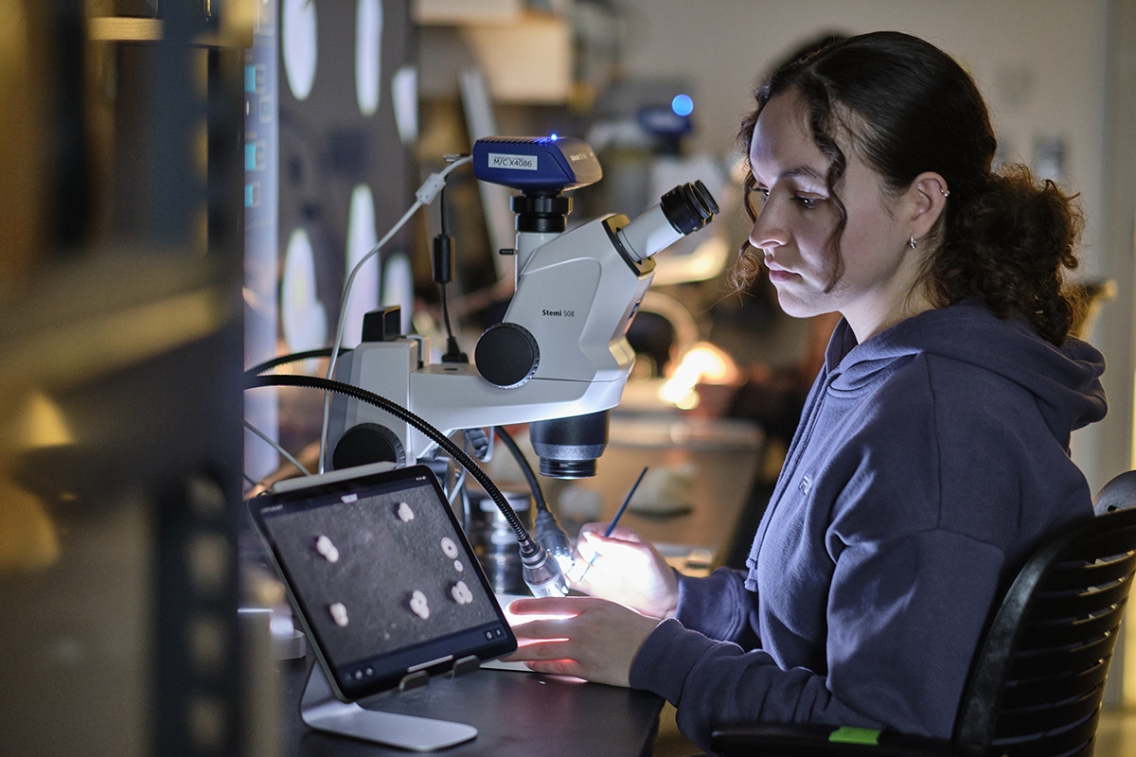Inclusive Excellence Grant from Howard Hughes Medical Institute Will Support Initiatives in the STEM Fields
Middlebury is one of 104 colleges and universities to receive a six-year grant from the Howard Hughes Medical Institute (HHMI) to support initiatives that foster more inclusive and equitable introductory education in the STEM fields: science, technology, engineering, and math.
The funding is part of HHMI’s Inclusive Excellence 3 Initiative (IE3), which challenged U.S. colleges and universities to “substantially and sustainably build capacity for student belonging, especially for those who have been historically excluded from the sciences.”
“Our STEM faculty made this grant possible,” said Middlebury President Laurie Patton. “In collaboration with our partner institutions, we hope this work will serve as a model for higher education, which must move in this direction for equity and inclusion. Our faculty meet frequently and regularly to discuss STEM pedagogy. I know those conversations are creative and insightful, and that deep commitment has paid off.”
HHMI organized 104 applicant institutions into seven Learning Community Clusters (LCC). Middlebury’s LCC, which includes 15 colleges and universities, formed a joint proposal around the question, “What processes and methods foster institutional change toward more inclusive and equitable introductory STEM education across a range of institutional types?” Like the other LCCs, Middlebury’s group created an information hub through which members will collaborate and share their findings over the life of the grant.

Middlebury will receive $531,600, spread over six years, to support a rigorous self examination of STEM teaching and curricula at Middlebury. Funds will support a wide range of activities, including faculty development, student engagement and agency, curricular change, and support for the grant’s core leadership team.
Much of Middlebury’s HHMI proposal came from its STEM Pedagogy Group, a self-organized group of science faculty that has been meeting informally for the past six years. Rick Bunt, associate dean for the sciences and lead investigator on the grant, says the group tends toward younger, newer faculty looking for directions and strategies for teaching. “A lot of them have the energy and creative ideas for new ways to rethink things, so this group is actively part of the grant going forward,” said Bunt.
The IE3 initiative targets the introductory STEM experience because that is when most students decide whether to continue with STEM or not, according to HHMI.
Bunt says that, despite good progress in attracting historically underrepresented students to Middlebury and the sciences, there is still work to do to ensure that all students feel supported and a sense of belonging.
“Every student who comes to Middlebury has their own history, their own story of why they came here and what they want to get from their education,” says Bunt. “We need to make sure we’re doing the best we can for all of those stories.”
Read more about HHMI’s Inclusive Excellence Initiative here.

